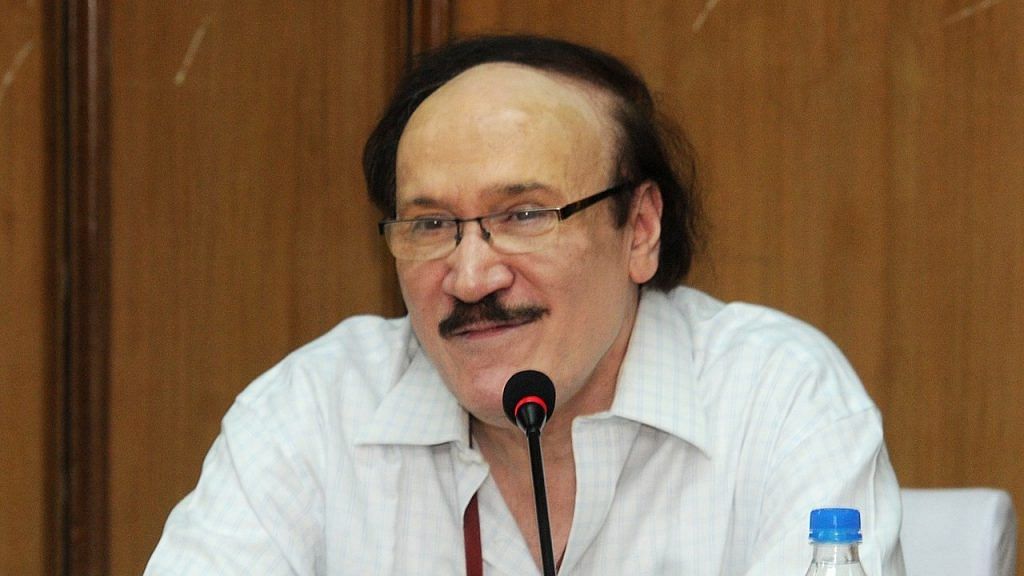New Delhi: Dr Maharaj Kishan Bhan, the man behind India’s first indigenously developed vaccine, passed away this Sunday after battling cancer. He was 72.
Bhan is credited with developing a rotavirus vaccine. A former secretary in the Department of Biotechnology (DBT), he also transformed India’s biotech programme and set up a number of institutions, enabling industry-academia collaboration in the field.
Among other contributions, he played a key role in bringing international funding by establishing partnerships with the US-based Bill & Melinda Gates Foundation and the UK-based Wellcome Trust.
Also read: For the first time, India has a genome database. But are we ready to use it?
Breaking new ground
Bhan was born in November 1947. In 1969, he completed his MBBS at Armed Forces Medical College in Pune, and went on to get an MD from the Post Graduate Institute of Medical Education and Research in Chandigarh.
His postdoctoral research at AIIMS Delhi was focussed on diarrhoeal diseases and child nutrition. He was awarded the prestigious Shanti Swarup Bhatnagar Prize for Science and Technology in 1990.
Despite his many achievements, however, it was his warmth that stood out for his colleagues.
“Bhan was one of those people who make you feel good whenever you go to them,” said Gagandeep Kang, director of the Translational Health Science And Technology Institute (THSTI) Faridabad.
“He encouraged you no matter what was happening around. He was also willing to continue to learn, which is remarkable in somebody who reached the level of seniority that he did,” she added.
“If there was a new topic, he would go and read the papers and then come back and argue with you… In recent years, I probably argued with him a lot on scientific matters. He seemed to enjoy those interactions.”
Kang played a key role during the rotavirus vaccine trials.
Rotavirus is the most common cause of severe diarrhoeal disease in children worldwide, and vaccination is the best prevention. Nearly 215,000 children aged under 5 years still die every year from the vaccine-preventable infection, according to WHO estimates.
The rotavirus vaccine, developed in collaboration with vaccine and biotherapeutics manufacturer Bharat Biotech, was the first that India built from scratch. It was licensed for use in India in 2014, and is one of four WHO-approved oral vaccines for the disease.
According to Kang, the project was aggressive and ambitious, as the process of recruitment for clinical trials was “hugely more complicated” since it involved babies.
“We knew a lot of people were watching us and a lot of companies were almost willing the programme to fail,” she added. “It would not have happened without him (Bhan).”
However, Bhan’s contributions to the biotech sector were not limited to the vaccine.
Also Read: Resilient new microbe named after Modi govt secretary who’s easing research for Indians
Ambassador of excellence
As DBT secretary, he was instrumental in setting up the Biotechnology Industry Research Assistance Council, or BIRAC, a public sector enterprise that enables academia-industry research collaborations in the development of relevant biotech products.
Dr Satya Dash, the founding head of strategy, partnership and entrepreneurship at BIRAC, had worked closely with Bhan for almost a decade. He said Bhan’s vision of BIRAC led to the development of many programmes within the DBT.
“Together with Bhan sir and BIRAC, we built the whole roadmap for the Indian biotech sector,” Dash said.
“He was a person who was exceptionally compassionate and full of life and love. Despite being pulled in several directions, everyone wanted his time, he was very accessible — he would give you time, he would listen to you,” Dash, who is now a board member at Pune-based business incubator Venture Center, told ThePrint.
“His imagination was global while being rooted in India. He really wanted excellence in science and leadership in India,” he said.
Dash also recalled how, during his stint as DBT secretary, Bhan had a treadmill next to his office. Sometimes if one went to meet him in the evening, “he would talk while working out in the office”, he added.
The Wellcome Trust/DBT India Alliance — a public charity that funds research in health and biomedical sciences in India — was also made possible by Bhan’s efforts.
Shahid Jameel, CEO of Wellcome Trust/DBT India Alliance, said Bhan continued to be interested in the work of the organisation “till the end and was always generous with his time”.
Also read: Meet Gagandeep Kang, Shimla scientist who’s helping save lives of thousands of Indian kids
